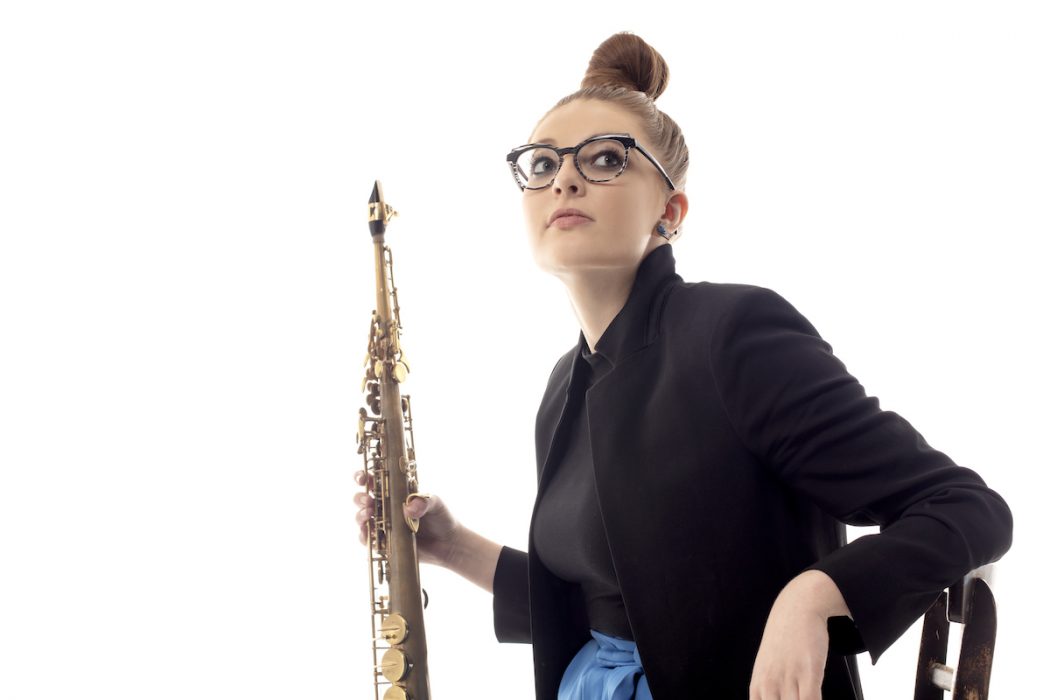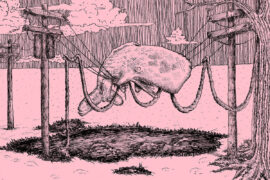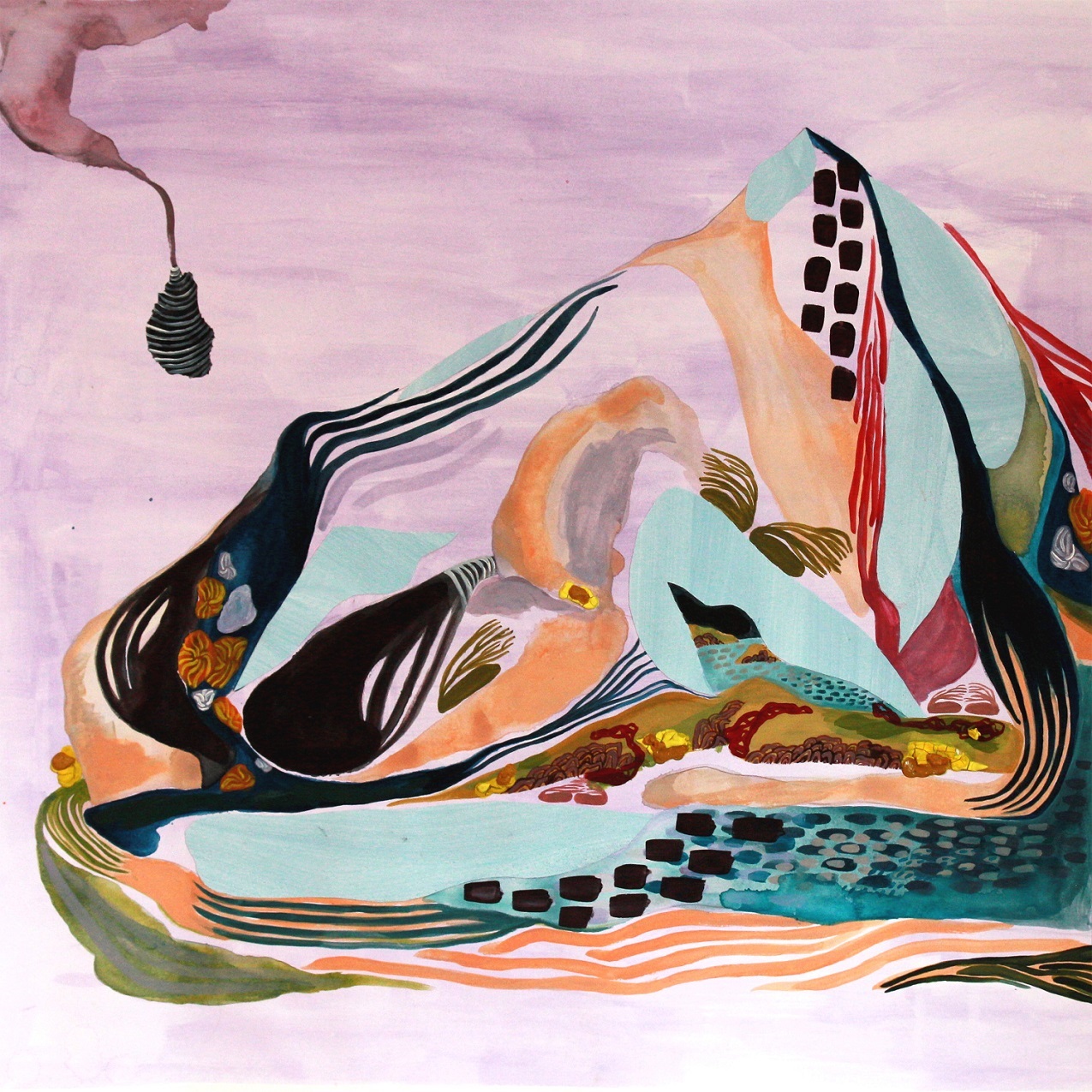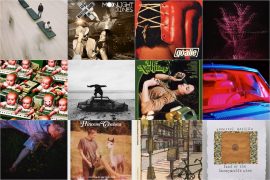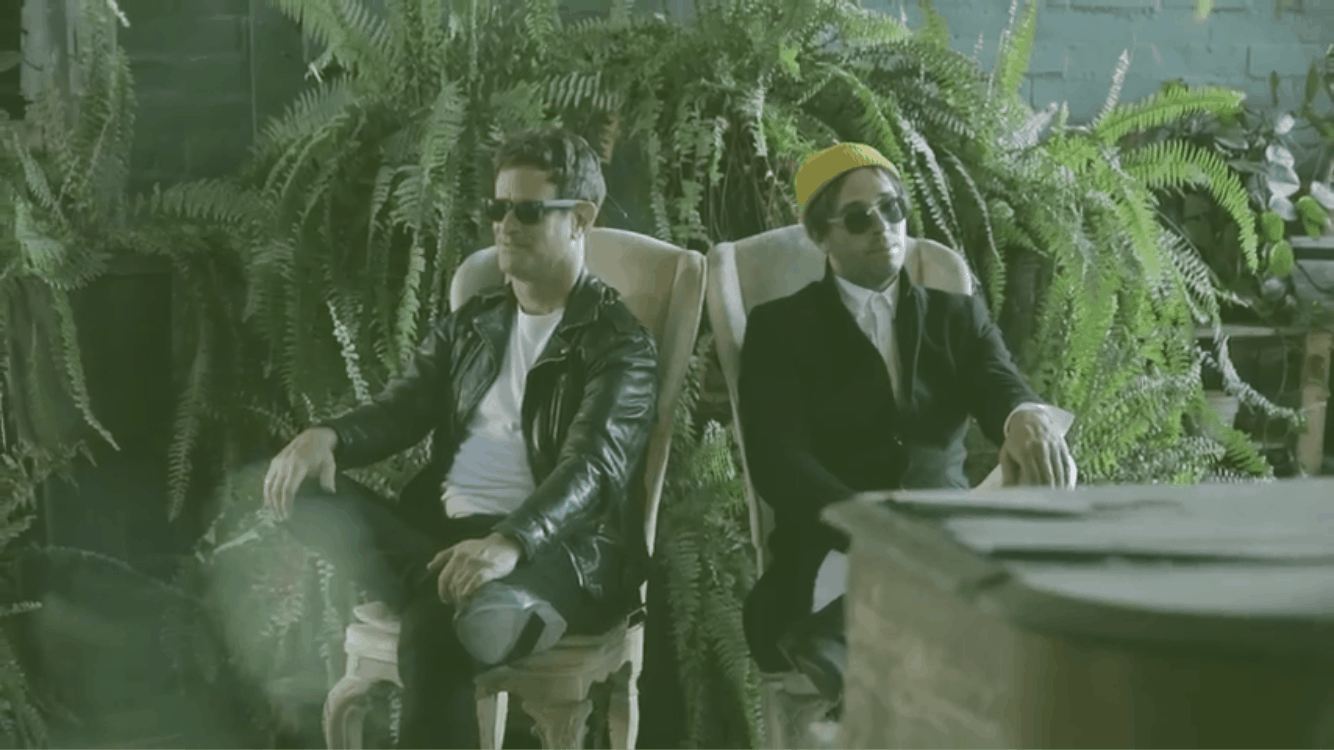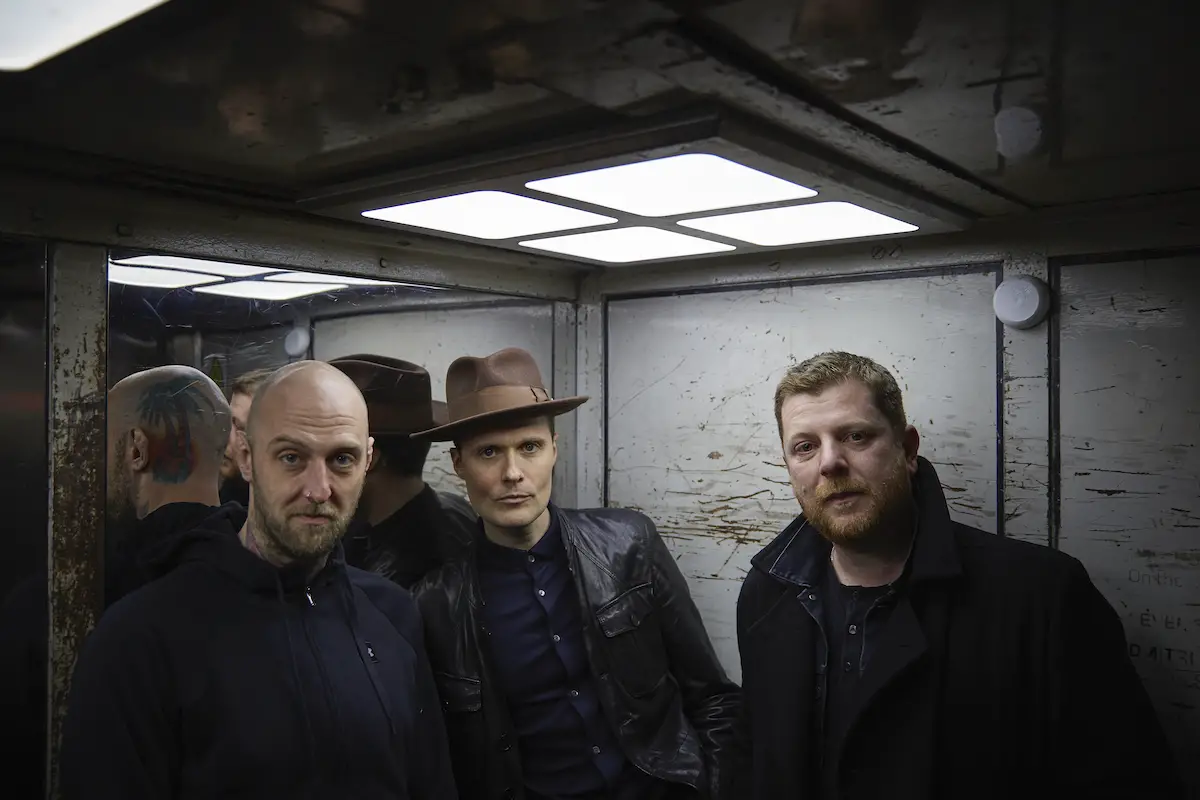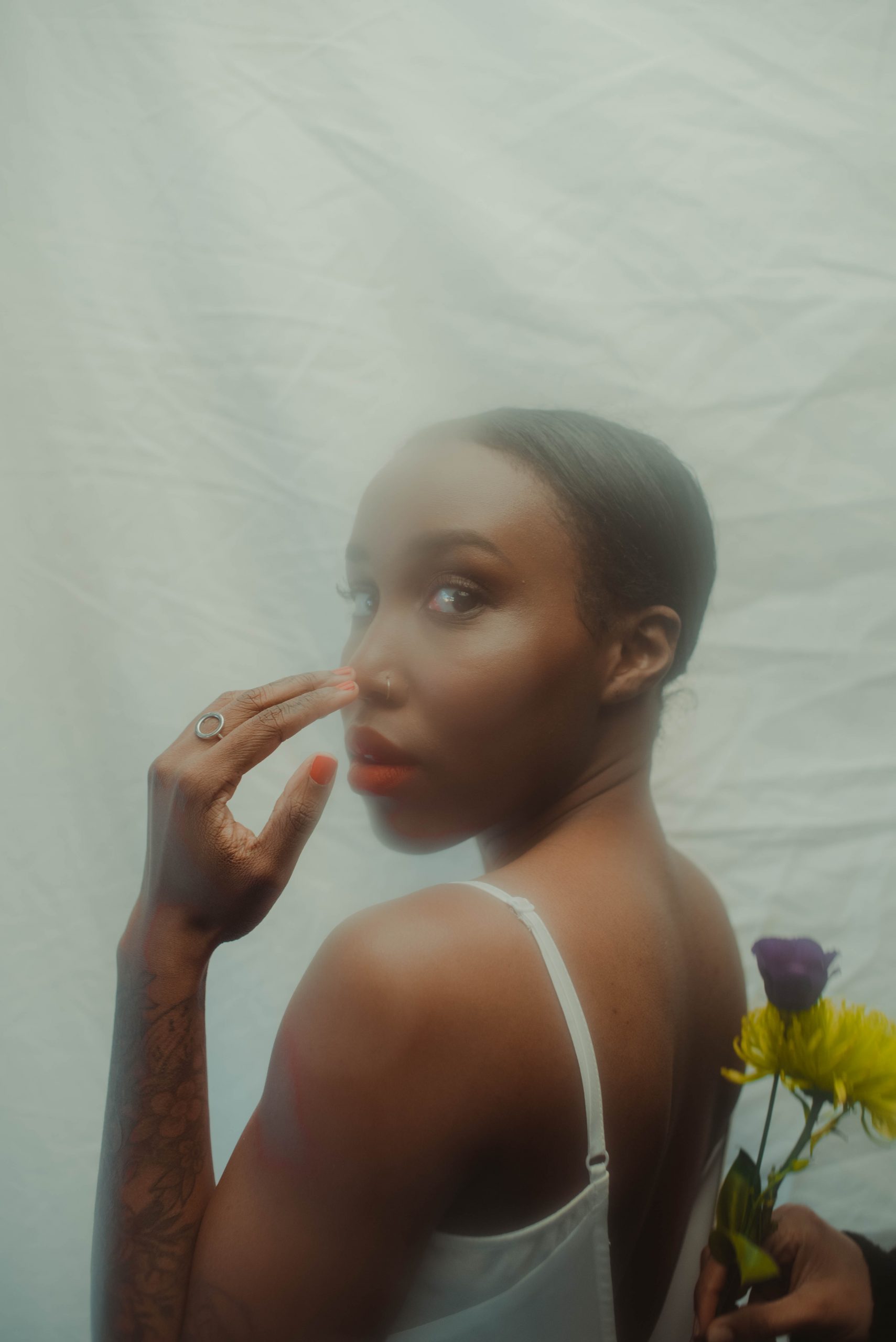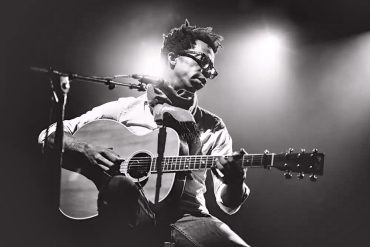‘TIME’, the sophomore album from saxophonist and BBC Radio 3 presenter Jess Gillam, is a record of time: From early morning, right through to the sky being dark enough to see the transit of Venus. Gillam spoke to Atwood Magazine about her upcoming album, the Virtual Scratch Orchestra initiative, and the power music has in breeding empathy and compassion in society.
Stream: “Orbit” – Jess Gillam
Music is a universal art form and is intrinsic to our humanity and our communities. It amplifies moments in all our lives, fosters empathy, and provides us with a bookmark, allowing us to revisit that memory each time we listen to a song or an album again.
Jess Gillam is an award-winning saxophonist, BBC Radio 3 presenter and charity patron. In 2019 Gillam released her debut album Rise, which went to No.1 in the Official UK Classical Charts. Gillam is also a presenter on TV and Radio; she became the youngest ever presenter for BBC Radio 3 and hosts her own weekly show on a Saturday called This Classical Life in which she talks to musical friends and colleagues about the music that inspires them. Gillam has also been the recipient of a Classic BRIT Award, was the first ever saxophonist to reach the final of BBC Young Musician of the Year, and in 2019, performed live at the BAFTAs. Gillam is a strong advocate for music being available to everyone regardless of socio-economic background, ethnicity, gender or disability and is a patron for Awards for Young Musicians and a trustee for the newly formed HarrisonParrott Foundation.
In April, Gillam launched the Virtual Scratch Orchestra, an initiative where she invites musicians of any standard to play music virtually with her. The Orchestra’s first performance was in April of David Bowie’s “Where Are We Now?”, which featured on Gillam’s debut album Rise.
Gillam’s sophomore album TIME comes out on 25th September on Decca Classics. Each song is its own little world, its own moment in time for you to climb into. The album is the cycle of the day set to music; opening with “Early Morning Melody” (Meredith Monk) and “Dappled Light” (Luke Howard) and closing with “Transit of Venus” (Joby Talbot) and “Emerald & Stone” (Brian Eno, John Hopkins and Leo Abraham).

The centrepiece of the record is Michael Nyman’s “Where the Bee Dances”, which has been a favourite of Gillam’s since she first heard it as child. Listening to TIME is the first time I have heard “Where the Bee Dances” and I can understand how Gillam became obsessed with the piece and wanted it on the album.
It is the longest piece on the album and perhaps the microcosm of the record. Its opening is slow and delicate, drawing you in like sunlight falling across the grass. Then suddenly, and without warning, gains momentum with Gillam’s playing and you begin to anticipate what is about to unfold. It is the only song on TIME where all sections of the orchestra feel like they are utterly reliant on the collective being more important that the individual; there is no separation. The strings push the saxophone forward; the bass adds rhythm that the saxophone and strings build upon; and altogether they create something truly beautiful and inspiring. There is a heroism to this piece, particularly as the softness of the opening falls away and as the momentum gathers in the latter half.
The album is a preoccupation with time, and in the context of the pandemic in which we all are living, time has become both infinitely precious and also utterly monotonous. Music has been the one constant in this ever-evolving situation and has been the one thing, for a lot of people, that has not only given meaning to those split second, mundane moments throughout the day but also those even rarer moments of connection.
Speaking to Gillam on a warm autumnal afternoon, whilst watching the leaves on the tree outside slowly beginning to turn, hearing her enthusiasm, passion and strong philosophy on the collective power of music and how it is music that pulls empathy, compassion and community together, I immediately felt uplifted and encouraged to be grateful for life in all its light and dark.
Throughout our conversation Gillam kept talking about the idea of the collective and community with regards to music and art. When I asked her about this school of thought or philosophy, if you will, she spoke about when she first started learning saxophone in a community-led environment and how it was not about how good one person was but about joy and bringing people together. Gillam also touched upon the importance of music being a source of empathy and compassion and how it should be available to everyone.
Stream: “Talbot: Transit of Venus” – Jess Gillam
A CONVERSATION WITH JESS GILLAM

Atwood Magazine: How are you? What have you been up to?
Jess Gillam: Very well thanks. I actually just did my first concert to a live audience, not yesterday the day before (Sunday 6th September), for first time in six months so I’m still buzzing.
Oh wow! I can imagine that was amazing.
Jess Gillam: Yeah, it was… I knew that I’d missed the feeling of live performance but until you’re in the room feeling that special magic, the connection you feel to the audience, until you’re in the room doing it, you forget just how amazing it feels and how that level of communication and connection, just how amazing it feels and how that level of communication and connection can be completely thrilling.
Did you cry afterwards?
Jess Gillam: Actually, when I walked into the rehearsal in the afternoon, I walked into the hall and just played a few notes, and then just tears were rolling down my face because I didn’t expect it, I didn’t expect the reaction until after I played but just being in a concert hall again, being in a venue again and not practicing except for in my flat, being somewhere else, able to share was super emotional.
I can imagine that. I think the last concert I went to was in March, and I knew what was going to happen, so I thought, I have to enjoy every moment of this because I don’t know when this is going to be okay again to do. How did it all work in terms of logistics and social distancing?
Jess Gillam: All of the audience were socially distanced, and they were all wearing masks as well. It was in Snape Maltings Hall in Suffolk, so usually they can hold an audience of 800 but they could only have 150 people in, so I did two shorter concerts so they could sanitise between the concerts and then have two sets of audience in. It did feel… I think you could definitely tell the difference because of the audience being distanced because there’s a sort of camaraderie you build up with the people you’re sat with watching a concert because it’s a collective experience even if you don’t say a word to the person next to you, you know that their having that experience too and you kind of live it together. It did feel different, but it was just an exhilarative feeling being able to share music again.
You vibe off each other and you look to other people, and there’s this energy in the room.
Jess Gillam: Yeah, I think that happens between just the audience themselves. It’s just that idea of being and doing something together as a group which is what we’re missing in every area of life right now.
We’re designed to learn from and being inspired by and be with people, I think, and as a musician that’s been one of the hardest things about the whole thing is not being able to have that connection.

This leads onto my next question about the Virtual Scratch Orchestra. I have been watching a lot of livestreams but the fact you’ve got anyone to submit a video and then it’s all mixed together, and then you play along to it. Where did that idea come from?
Jess Gillam: I think it came from the idea of music being able to bring people together and for it to be a collective experience and for it to bring unity. I think that’s one of the things I’m most passionate about and the reason why I’m a musician is because I love to try and tell stories and tell people stories through music, and to connect with as many people as possible and to try and bring a little bit of joy to as many people as possible.
So with the Scratch Orchestra I was seeing a lot of livestreams happening and a lot of online concerts which were amazing but again I was still missing that connection with audience because then you can’t see the audience at all when you’re doing a Zoom concert, so I wanted something where people were able to participate and feel like they were part of something bigger than their bedroom or wherever they were practising and to have that sense of collective spirit and moment of togetherness.
All the musicians played to a click track, didn’t they? So how did it all come together?
Jess Gillam: Well, to be honest, I wasn’t expecting anywhere near as many people to send in. We had just under a thousand people, and I expected maybe 200 maximum. I was up all hours just downloading all the videos and all of the tracks and then we had an amazing producer whose produced the new album, Jonathan Allen, who mixed everything together incredibly well and was really generous his time for the project and just trying to make it work and was just really, really lovely.
We announced and then there was just nearly two weeks to submit and then we turned around the video in 10 days.
I guess there was a lot of learning new techniques and technologies.
Jess Gillam: Yeah, and how to create something that was as meaningful as possible to try and bring some sort of joy to as many people as possible and the responses were incredible.
There were people emailing saying, I have cancer or an illness, which has meant that I haven’t been able to be out since February and therefore not part of anything bigger than what’s in my house, and they said this has just brought so much joy to feel a part of something and to feel connected to other people has just been a brilliant experience and that’s why I did it, and I’m so glad that it managed to achieve that because I think that’s what music can do, it can make you feel part of a community and a certain level of empathy and hope.
That’s really beautiful and lovely. That’s why I listen to music, when I have a feeling I listen to music and then hear that someone has put it together in melody or in words and I don’t feel so weird, which I guess is what the point of it is really.
Jess Gillam: I think that’s why we need to encourage as many children as possible to learn an instrument or to be a part of music because it does give you that sense of not being alone and the amount of empathy that come from just listening to music is incredible.
This must have been a lovely outlet for kids who have been at home and missing out on orchestra and music lessons.
Jess Gillam: It’s the formative experience of when you’re that kind of age of playing in youth orchestras and school bands. They were some of the best days of my life playing with other like-minded young musicians and just having fun with your friends playing music, and for that to be all taken away was, I felt really sad for all of those people so I wanted to try and create an experience that would emulate some of that feeling.
I wanted to talk about your album TIME, which comes out on 25th September. I listened to it yesterday for first time and it sort of brought me back down to earth and I found it a very grounding experience. And obviously it’s a literal story of early morning right through to evening and it’s just so beautiful and I wonder… it is obviously called TIME and it’s obviously about the processes of time, and I know you said you were inspired to write it when you moved from Cumbria down to London and how you felt life is at such a fast pace in London and this was way to capture that. I wonder where the inspiration came from and how you selected the songs you did for the album?
Jess Gillam: It was definitely a long process and there were so many ideas storming around and tried out, and then we came to the arrival point that the album is at now and for me music is about communication and reaching people so I wanted to make sure the music on there was as authentic as possible. Music that genuinely moves me or creates a sense of space or I have real connection to.
It started with “Where the Bee Dances”, the orchestral piece, which is just one of my… When I was younger that was my first time I’d heard classical saxophone was when I’d heard that piece and I’d heard John Harle play it, and I thought that is the piece for me. I was just inspired by it, listened to it obsessively and then knew that I wanted to record that and for that to be kind of the centre of the album. And then everything else just kind of grew out of that feeling of having moved down and this idea of cycles and everybody’s in their own cycle and their own sort of bubble and world, and how we just, in London, you just go. You just get up and go, and everybody is switched on all of the time and it really is like everyone says, “the city that never sleeps”. It kind of occurred to me that so many people seem to be looking for a place in which or an oasis in which to escape to, a place in which to exist.
Maybe some space away from that but also to some space to question what’s happening, to look at the world from a calmer point of view, away from the frenzy and it was actually inspired by something Bjork had said in a video. She said, “Within one note you can create this microcosmos of sound and a place in which people can just exist and look around and just see what’s happening rather than being an observer or spectator from the outside, they can actually go into the world of the music and look around and be a part of it.” So, I wanted to create that kind of experience on the album.

I was going to say that each song does feel like its own little world, this little moment, and it kind of makes you re-evaluate. A lot of people are working from home and the days do just feel the same, but you now notice smaller things throughout the day, like the way the light changes in the morning. I just feel the songs themselves are their own little world, so I think you’ve accomplished what you set out to do really, really well.
Jess Gillam: Oh, thank you, that’s so nice to say.
I also was thinking as I was listening that you obviously made the album before lockdown, before all this had happened, and it is obviously a concept record and I am wondering now, when you listen back to it, has the meaning of it changed a little bit?
Jess Gillam: Yeah, it was kind of a strange series of events because we finished recording just before lockdown, just a couple of weeks before and then we had to mix the whole thing virtually. So with Jonathan (Allen) we were on a livestream from his desk and mixed over the internet because I couldn’t go to the studio and then music did begin to take on this new sort of… like you say a new feeling because we were living in a completely alien world and a lot of what I’d been thinking about and a lot of what the album had been inspired by, the idea of space and a moment of calm and reflection, had been given to us in the most strange and in the most distressing of circumstances but nonetheless still more space and more time. So, the tracks did begin to take on another life and as we were mixing them, they became relevant in a different way. The idea of shaping and molding time, and the idea that music can change how we perceive time, really became important to me in lockdown because it was one of things that punctuated the day, of giving you some sense of direction with the music.
I also have read that more young people had been streaming classical music than before lockdown.
Jess Gillam: There was that amazing study by Deezer and BPI and it’s so encouraging, and I think it really shows that classical can be relevant and it can engage a diverse range of audiences and a diverse range of ages when it’s accessed and presented to people in the right way and it’s so encouraging to hear that more young people are listening to classical music and I think now people are using music as a sort of utility in a way. Not necessarily as escapism but just a way to transform or change a room so now in lockdown where we couldn’t travel the world you could put on music and be transported to another place. It can make you feel things you felt when you were in a certain place or send you to a place and it’s great to know more young people are engaging with it.
It’s all at your fingertips. You can just go to a playlist on Spotify or Apple Music and it brings up that particular mood, so it’s more accessible than it ever used to be.
Jess Gillam: I think that’s a really interesting thing, the idea that we’re listening by mood rather than by genre. It means you could be listening to Stravinsky one second and death metal the next, and they’re maybe more closely related than Stravinsky and Schubert but still they would be classed in the same genre. But the mood that it creates and the sense of rhythm and intensity maybe more similar to death metal than other orchestral music. I think the idea that we’re starting to listen in a more mood-based way rather than by genre is really exciting and streaming is propelling that forward.
It’s a lot more freeing as opposed to twenty years ago when the idea of classical music was thought of as for a certain type of person and if you don’t fit into that then you felt you couldn’t enjoy it whereas now it’s kind of been opened up with film scores I think as well as streaming, which is nice way to become interested in classical music.
Jess Gillam: It’s the idea of music just being music and you like what you like and you anybody can access any type of music, and of course there are certain traditions to be respected and certain etiquette in certain forms but at the same time music, I believe, should be for everyone and every type of music can be loved by anyone, so it’s great to know that people are accessing different types of music.
I have to ask, what is your favourite time of day?
Jess Gillam: My favourite time of day (laughs). It changes depending on what’s going on but I do love early morning, like 5 in the morning before anyone’s awake and before the world’s started and you can hear or sometimes, in some places in London you can hear the birds singing and see the sunrise. I’d say the crack of dawn or sunset. Or the sirens! (laughs)
You have just done your first live performance since March?
Jess Gillam: My last live performance was two days before we went into lockdown and then it’s been about six months.
I wanted to ask about live music and what your thoughts are on what could have been done differently by the government, what you think should have been done or what lessons can be learnt and now with the stimulus package that was announced in July but which took a lot of pushing to get released, what are your thoughts surrounding all of that?
Jess Gillam: I think it’s been fascinating to see the different responses from different corners of the arts. So, from theatre really early on there was a such unified response and such unified call for action and I think as a society we don’t realise how important the arts are to us as a society, both economically and mentally and just on a simple level of fulfilment in life.
I read a study in lockdown, I can’t remember where it was, but the study interviewed members of the public and asked which jobs are important, and the artist had come out with only 1% of the public seeing the artist as a valued and important job, and I was just thinking… What?!… Most people during lockdown have passed time by watching film, listening to music, maybe watching livestream theatre, watching tv shows… the arts contribute to so much mentally and economically.
I think our society doesn’t value that quite enough so of course everyone is fighting for the money and everybody’s fighting to be supported and especially at this very difficult time and we weren’t supported until quite late on as an arts sector, which doesn’t reflect the amount of good we bring to the economy and we bring, as when I say we, I mean the arts industry brings to society and the arts industry brings to people’s daily fulfillment.
I think we need a societal appreciation change, which is a very big ask and maybe not so achievable, but I think the different responses from different venues has been super interesting. Snape Maltings have done a great job in getting open and getting audiences in to see live music whereas for some venues that hasn’t been possible, or they haven’t wanted to take certain risks, so I think it’s been interesting to see the difference responses to it.

I am not a Spotify user because of the financial implications for artists and having spoken to a lot of American artists who receive very little money from streaming and who also have more financial outgoings than British artists, such as healthcare. I feel like now is the time to maybe re-evaluate. The fact that the public values artists so little, according to the study you mentioned, and it feels like even though music accompanies us to work, we listen to it at home, we get married to it, we dance to it and it is such a big part of lives… We need to rethink our relationship to music and to the arts in general.
Jess Gillam: I completely agree, and it is something I’ve thought about quite a lot, what you just said, the fact music is intrinsic to our humanity. At a funeral we hear music, at a wedding we hear music, at the most important occasions in human life we accompany it with music, or it is amplified by music. The feelings that occur at those events are amplified and made stronger by music because it is such an emotional art form and can really change a person’s way of thinking, it can change a room, it can change the atmosphere and I don’t think we really realise that as the public. I don’t think we realise because it is so readily available you can just click it when it is so available that we maybe don’t appreciate it in the same way but it’s everywhere and we need it to be happy and to survive.
Jess Gillam: And I think the lockdown has proved that because in many ways there were so many people saying, “What do we have to live for now?” and everyone had to question their role and everyone had to question their existence and what was important to them and I think we mainly live for relationships and connection to people and shared experiences and collective experiences of experiencing the world, whether that be through theatre or music or having a meal together but the idea of being together as a society and together a race is for me that’s why we exist and I live for that, I live for sharing times with other people and sharing music and sharing joy so I believe we need the arts as an essential not as an add or a luxury.
How do you see live music post-COVID-19 looking?
Jess Gillam: I think it’s going to feel for musicians even more of a privilege to be able to perform to people and share music with people but I really hope that we see a shift to maybe more community based projects so that we as musicians are really conscious about who were are reaching with music and who were are trying to engage and where we’re playing that music.
I don’t think it’s enough to go and play in a concert hall somewhere and then fly home. I think to engage younger audiences in that area, to maybe go into prison or a care home or to go into a space… to take music to people who may not have the opportunity to experience it otherwise and it may enrich their lives.
I’d really like to see a shift in where we take live music and how far its reach can be.
I wonder if doing that people will therefore value music because instead of them being on the fringes and being unable to go and see an opera or go into London, if it is brought to them, they might place a higher value on it.
Jess Gillam: If they have had an actual experience with it and they’ve been active participant in being a part of the music and part of the experience, therefore it’s their world as much as it is anybody else’s world.
When I was reading your open letter to The Guardian, I was thinking back to when I was younger and I remember the county council where we lived would offer music lesson in schools and if your family didn’t have enough money, which at the time my mum didn’t because she was on her own, we were given a grant, and I got to learn violin and got to learn cello. That doesn’t exist anymore. So there’s all these kids who might want to learn but can’t and I’m just wondering because you’ve been a big advocate for this, what do you think the government should be doing to encourage more children and young people to pursue music who can’t because of income or because of a disability or other social barriers?
Jess Gillam: I think there should be a high-quality music provision in every school. Whether that be group learning or individual instrumental learning. To engage audiences in the future, to have sustained industry especially the classical industry we need to, I think make that shift so that music is seen as an essential part of the curriculum and something that isn’t, “Oh we’re doing music on a Friday afternoon because it’s the easy subject and it’s the fun subject”.
It’s statistically proven, there are so many studies to show that a child who studies music and is active in music immediately has their academic results improved. It enhances the motor skills, the fine-tuned motor skills, the mental skills, the ability to evaluate and look at things from different angles. I don’t think it is unrealistic to say that’s what should be provided because I’m not suggesting that we try and breed a society of musicians but I think to have musical citizens or artistic citizens that have grown up in an environment and have been educated in an environment where empathy is really valued, and the ability to communicate and be part of a whole is really valued. It doesn’t mean everybody has to be a musician, it just means that everybody has had an experience of what it is to be part of the collective and what it is to learn from artistry and what it is to learn how to shape the future.
I have to ask, you talk about the collective and the fact that empathy is so important and music is a great conduit for that, and I’m just wondering is this school of thought something that you’ve come to by yourself or has it come from when you were at school or your parents, or is it an amalgamation of all of that? Because it’s really refreshing to hear when you talk about music, you don’t just talk about it just the sometimes-narrow artistic sense, but you talk about it in terms of community and as a whole.
Jess Gillam: I think it’s an amalgamation of my upbringing and some of the artists that I’m inspired by. I first started saxophone in a community carnival centre in Cumbria where my dad was teaching percussion.
From the very first time I played with other people everything was about joy and bringing people together. It wasn’t about being the best at your instrument it was about being a part of the band and being part of the group and finding your role within that.
I think I hadn’t really realised at the time, well you don’t realise at the time, how much that has shaped me and shaped the way I think about music and I guess in a way the way I think about life, what it boils down to is that I really love people. I really love finding out people’s stories, the way they think; the way they like to live; and I think music is an incredible conduit to be able to express emotion and I guess just gratitude for life. The fact that we can be here and the fact we can make music, is an amazing thing and I just try and make the most of it.
A good ethos to live by. My final question is, BBC Radio 3’s This Classical Life which I love and is one of my favourite things to listen to on a Saturday, because you are just so enthusiastic about it and you are just so into the music that the guests bring and you are able to talk to them and there’s no “I don’t really like that so I’m not going to engage”, you are fully engaged with it. How much preparation goes into each show and how much control do you have over what guests you invite?
Jess Gillam: It is definitely a collaboration with the producer who at the moment is Martin Web and we’ll talk about guests together and talk about the music but then when I know the track list and the guest, I spend a couple of hours listening to the music and researching it and trying to find out stories related to it.
It’s just a fascinating… I’m really grateful to have the show to motivate me to do that, to find out stories behind music and its relationship to the world and to people and I love doing the preparation for it and the show.
The music the guests bring is not all classical. I listened to one where the guest brought Sam Cooke’s song “A Change is Gonna Come”, and people really bring everything to it. I just think it’s really, really good because BBC Radio 3 because it isn’t just classical there’s a lot of jazz, there’s a lot of experimental music and world music. I feel like This Classical Life and you have opened it up to everyone. And with your enthusiasm, I always feel really positive after I’ve finished listening to it.
Jess Gillam: Thank you. I think it’s just the idea again that music is music and we have a reaction to it emotionally and maybe intellectually, physically, mentally and it kind of doesn’t matter in some aspects where it comes from, it just is music.
— — — —

Connect to Jess Gillam on
Facebook, Twitter, Instagram
Discover new music on Atwood Magazine
? © 2020
:: Stream Jess Gillam ::

